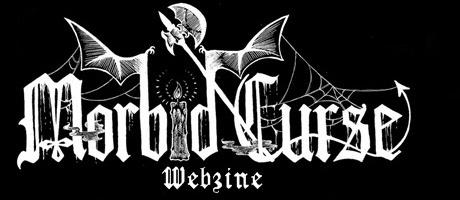
Campo de Exterminio is the debut L.P. from Holocausto. Released in February
1987, on Cogumelo Records, this is one of the earliest full-lengths from the Brazilian black metal scene. Holocausto was just
as known for their controversial imagery as they were for their chaotic sound. To go along with the name of the band and the
title of the album, the vocalist was named Rodrigo Führer and the intro featured a speech given by Hitler. Of course, they
later claimed that this was all done for effect only. That may be true, as the photos that are included feature not only Hitler,
Mussolini and holocaust victims, but a small picture of Stalin as well. Of course, anyone with even a casual interest in WWII
should know that Stalin was an enemy of the Third Reich.
Following the introduction by the Führer, himself, the album truly begins with
"Campo de Exterminio". As one might be able to ascertain, the title translates to "Extermination Camp". It begins with a mid-paced
thrash riff, before speeding up. The production is fairly poor, being quite a bit below Morbid Visions, but slightly
better than Vulcano's Bloody Vengeance. The sound is raw and necro. The vocals are typical of the Brazilian black
metal style. This track is well-structured and features a fairly decent lead solo.
"Forças Terroristas" ("Terrorist Forces") begins with a quick drum roll and displays
some variety in the vocals. For this one, Anderson Guerrilheiro lends his throat to the mix and utilizes a raspy, higher-pitched
approach that adds to the primal feeling given off by this music. The riffs are made up of some tremolo picking as well as
the usual thrash style. The solo is more chaotic and unrestrained than on the previous track, not doing a whole lot to add
to the feeling.
"Scória" blasts ahead at full speed, creating a hellish feeling with the searing
guitar riffs and the possessed vocals. The title translates to "Scorn" and this feeling is conveyed through the music. Here,
the deeper style is mixed with the more sinister type from the last song. Near the middle of the song, the pace slows down
and the atmosphere is one of evil and eternal torment. The mid-paced riffs carry the song to its conclusion as anguished screams
echo from beyond.
The next song is "Facção Revolucionária Armada" ("Armed Revolutionary Factions"),
having a very similar sound to Sarcófago's I.N.R.I., which was released six months later. This intense song is dominated
by barked vocals and blast beats, though the tempo does slow down for a few moments. Upon first listen, this entire album
has quite a chaotic feeling, but the structure becomes more apparent with repeated listens.
"Regimento da Morte" ("Death Regiment") opens with a slow, doom-laden riff and
demonic screams that are reminiscent of "Funeral Rites", from Sepultura's Morbid Visions L.P. The early moments of
this song are some of the most memorable of the album. After the intro section, the song bursts forth at a relentless pace.
Rodrigo and Guerrilheiro both handle the vocals, here. This is one of the longer and more complex songs on the record, showing
a lot of diversity in the riffs. It all flows together well.
"III Reich" ("Third Reich", naturally) follows this, clocking in at just over two
minutes. It is fast-paced and energetic but, ultimately, this is filler. The lyrics describe, is grisly detail, the supposed
atrocities of the Nazis; speaking of Jews being burned or eaten by dogs, Mengele's experiments and the scenery around the
Auschwitz Holiday Camp and Health Spa. The last two lines give a contradictory feeling. They translate to:
"The laws of life
Spat on and maltreated"
Surely, the band must be referring to the pitiful treatment received by the Germans
once the zionist forces unjustly invaded the fatherland. But, back to the music...
The next song is "Vietnã" ("Vietnam"), which begins with a brief build-up before
unleashing its fury with a mid-paced attack, soon transitioning back to the frantic pace found elsewhere on the album. The
lyrics for this one make it clearer that the band is simply fascinated by war, in general, rather than really supporting any
particular group. The tempo changes a few times, ending with more of a subdued approach.
"Guerrilheiro Suicida" ("Suicidal Guerilla") is another unexceptional piece of
music. By this point of the album, it seems that Holocausto is a little less successful at holding my attention than their
Brazilian peers. It isn't bad, it's just mediocre when compared to the first half of the record.
Campo de Exterminio concludes with "Setembro Negro" ("Black September").
This is the longest song on the album and begins with standard thrash riffs that have been recycled dozens of times. The musicianship
is a bit sloppy, which is a little more apparent here than on some of the other tracks, due to the more intricate arrangement.
However, this song is an improvement over the previous few. The track ends with everything seeming to fall to chaos. It almost
sounds as if the band was consumed by flames.
Overall, this album isn't as essential as I.N.R.I., by any means. Nonetheless,
there are a few satisfactory tunes to be found here. If the album had been shortened to six tracks (also omitting the intro),
this would have been a little better. Sometimes, less is more. At any rate, anyone that is into the early albums from Sepultura,
Sarcófago, Vulcano and Mutilator should give this a listen.
(26 Apr. 2009)


